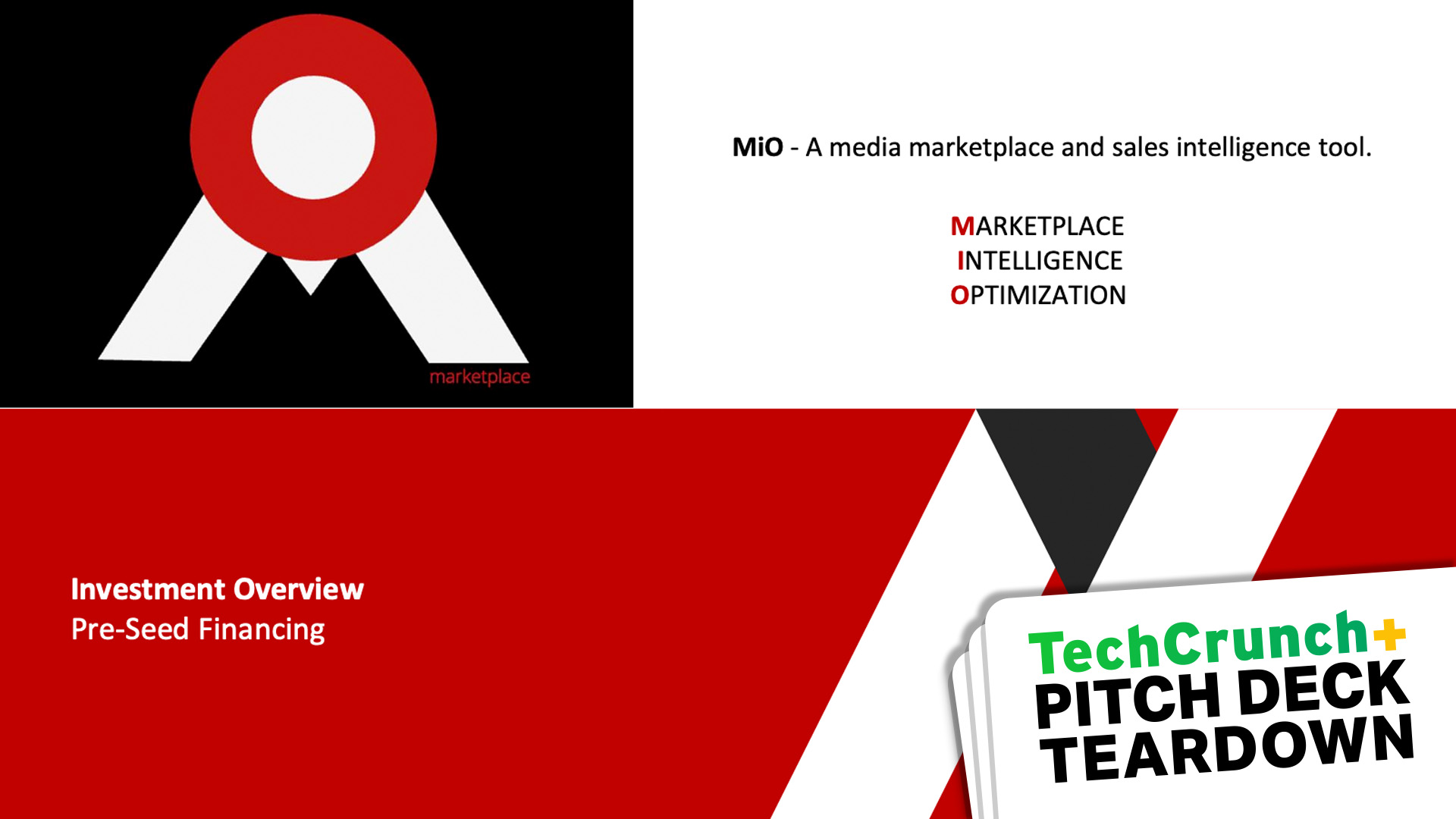No one can predict the follow-on effects of a moment like this. We are in uncharted territory.
I write this twice-weekly newsletter on a tight deadline, so when I saw a press release that started with “Silicon Valley Bank, Santa Clara, California, was closed today,” I realized I might need to pivot.
To protect SVB’s former customers, who have around $175 billion in deposits, the Federal Deposit Insurance Corporation (FDIC) transferred assets to a new entity: the Deposit Insurance National Bank of Santa Clara.
Insured customers who deposited $250,000 or less will have access to their money on Monday morning, according to the FDIC. Uninsured customers will receive an advance dividend in the next seven days, but beyond that, they’ll only get a certificate for the remaining balance.
Full TechCrunch+ articles are only available to members.
Use discount code TCPLUSROUNDUP to save 20% off a one- or two-year subscription.
Will those customers ever be made whole? It’s hard to say: “As the FDIC sells the assets of Silicon Valley Bank, future dividend payments may be made to uninsured depositors.”
Silicon Valley’s favorite bank just failed. Sit with that.
No one can predict the follow-on effects of a moment like this. We are in uncharted territory.
There’s no question that this will impact deal-making, but uninsured customers who run startups still need to buy laptops, pay cloud vendors and cover worker salaries and benefits.
I’m not a market watcher or a financial expert, but here’s some advice: Panic is a luxury. If you’ve been personally impacted by this news, take a breath before making a move. Talk to some friends. Take a walk.
And don’t let fear rule the day.
Be well,
Walter Thompson
Editorial Manager, TechCrunch+
@yourprotagonist
Building a lean B2B startup growth stack
Image Credits: Jose Bernat Bacete (opens in a new window) / Getty Images (Image has been modified)
Selecting the right tool for the job is easy when you already know exactly how to proceed.
Most B2B growth marketers don’t have a blueprint to work from, however, which is why Primer CEO Keith Putnam-Delaney shared a guest post with TC+ that identifies which tools are most appropriate for early-stage, midstage and late-stage startups.
“The current budget-constrained environment should be seen as a net positive by marketers,” he writes. “It will force teams to think deeply about what’s absolutely necessary, which tools will add efficiency (or subtract from it).”
Venture firms are advising portfolio companies to move money out of SVB

Image Credits: Spencer Platt / Getty Images
“My ask is just to stay calm, because that’s what’s important,” said Silicon Valley Bank CEO Greg Becker yesterday during a Zoom call with customers.
Becker was doing damage control after SVB announced plans to sell $1.25 billion in common stock to shore up its finances after the bank acknowledged that a reduced pace of deal-making and “elevated client cash burn pressuring balance of fund flows” were impacting its performance.
Since SVB was the bank of choice for so many startups, Natasha Mascarenhas and Alex Wilhelm spoke to several investors (on and off the record) to find out how they’re advising their portfolio companies.
Q1 2023 market map: SaaS cost optimization and management

Image Credits: John Lund Photography Inc (opens in a new window) / Getty Images
Since the downturn began, SaaS has become a game of fine margins. Startups that find the right tools to drive growth while optimizing vendor and cloud expenses can enhance short-term gross margins.
“Investors are knocking at the door to see improvements every quarter,” says Jonathan Schwartz, an investment associate at Ibex Investors.
“Simply reducing costs in lieu of growth will not work. Likewise, maximizing growth with little sensitivity around costs won’t work in 2023.”
New wave of VC funds show it’s time to rethink how many LPs is ‘too much’

Image Credits: Getty Images
Between 2015 and 2021, the average number of limited partners associated with a venture fund steadily increased.
Reporter Rebecca Szkutak spoke to VCs Haris Khurshid (Chalo Ventures) and Mac Conwell (RareBreed Ventures) to learn why some investors are starting to reject the traditional notion that fewer LPs are preferable.
“As folks are raising their first funds or second fund, it’s really hard to get institutional funds, but people can’t write big enough checks,” said Conwell.
“Ever since I did my first raise, I was thinking about how to increase the number of LPs you are working with.”
Pitch Deck Teardown: MiO Marketplace’s $550K angel deck

Image Credits: MIO Marketplace (opens in a new window)
Connecting media publishers with buyers, MiO Marketplace recently closed a $550,000 angel round that valued the company at $3.6 million.
“MiO nails its pitch in a few really important parts, which is ever so delightful,” writes Haje Jan Kamps, who deconstructed the company’s 16-slide deck:
- Cover slide
- History slide (“Evolution of online marketplaces”)
- Vision and mission slide
- Problem slide
- Solution slide
- Opportunity slide
- Market-size slide
- Competition slide (“B2B SaaS for Media Buyers/Sellers”)
- Value proposition slide 1 (“Features for buyers”)
- Value proposition slide 2 (“Intelligence for sellers”)
- Business model slide (labeled as “Go-to-market”)
- Traction slide
- Financial slide (labeled as “Projections”)
- Team slide (“Founder”)
- Board of directors slide
- Contact slide
Dear Sophie: Last-minute H-1Bs, O-1A & EB-1A extraordinary credential prep

Image Credits: Bryce Durbin/TechCrunch
Dear Sophie,
How many people are employers going to register in the H-1B lottery this year? Will there be fewer because of all of the layoffs?
Is it still possible to include additional candidates before the deadline next week?
— Fast-paced Founder
Dear Sophie,
Can I improve my portfolio of accomplishments to establish my qualifications for an O-1A extraordinary ability visa and later an EB-1A self-petitioned green card if I am in the U.S. but don’t have a work permit yet?
— Earnest & Exceptional
7 investors reveal what’s hot in fintech in Q1 2023

Money coins in a pile
How are fintech investors adapting during this downturn, and how are they advising the founders in their portfolios?
Mary Ann Azevedo interviewed seven VCs to ask how (or if) any have shifted their thesis to fit current macroeconomic trends and learn more about the types of opportunities they’re looking for right now:
- Charles Birnbaum, partner, Bessemer Venture Partners
- Aunkur Arya, partner, Menlo Ventures
- Ansaf Kareem, venture partner, Lightspeed Venture Partners
- Emmalyn Shaw, managing partner, Flourish Ventures
- Michael Sidgmore, partner and co-founder, Broadhaven Ventures
- Ruth Foxe Blader, partner, Anthemis
- Miguel Armaza, co-founder and general partner, Gilgamesh Ventures
TC+ roundup: Silicon Valley Bank fails, fintech VC survey, B2B growth tools by Walter Thompson originally published on TechCrunch
Source : TC+ roundup: Silicon Valley Bank fails, fintech VC survey, B2B growth tools












